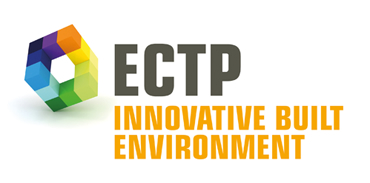
EnRiMa
Energy efficiency and risk management in public buildings
Start date: 01.10.2010
Duration: 42 months
Coordinator: Stockholm University
Budget: 3.49 M€
Details
The objective of the EnRiMa project was to develop an ICT-enabled decision support system (DSS) for owners and managers of public buildings for improving energy efficiency and managing risk. EnRiMa goes beyond the state of the art by developing two DSS modules: one for short-term operational analysis and another for long-term strategic advice. The former expands the boundaries of modelling energy flows at the building level by treating the thermodynamics of heating and cooling systems and incorporating the features of the building shell. These considerations allow for the reduction of energy consumption for heating and cooling while keeping internal temperatures within acceptable limits. Indeed, this is in contrast to the static set-point temperatures employed by commercially available building energy management systems (BEMS).
Through an optimisation approach, our so-called smart BEMS illustrates that the reductions in energy consumption may be considerable and are robust with respect to policy measures. For example, numerical examples using data from two test buildings (one each in Austria and Spain) indicate that energy consumed for heating may be reduced by up to 30% without the need for any new investment. Together with extensive testing of the model’s underpinning thermodynamic equations (at a laboratory facility) and state-of-the-art ICT integration with the test sites’ BEMS, the operational module of our DSS was ready for deployment and validation. Effectively, the smart BEMS provides an additional layer of decision-making intelligence that can sit on top of the existing ICT system at buildings thanks to a graphical user interface (GUI). Via this GUI, the building manager can avail of enhanced decision support.
Likewise, the strategic module of our DSS went beyond the existing state of the art by incorporating risk control for decision making under uncertainty at the building level. Since investment and retrofit decisions are necessarily made in the presence of stochastic energy prices and technology costs, a novel dual-level scenario generation tool was devised for use by the strategic DSS module. Thus, it provides “what-if” analysis capability to building owners who will increasingly need to improve the energy efficiency of their holdings in line with forthcoming EU regulations. Moreover, they have the option to control risk, and numerical analyses of our two test buildings show reductions in expected energy consumption of up to 35%.
Unlike most research projects, the EnRiMa effort not only went beyond the existing state of the art by developing two optimisation models for the building level but also validated their performance through ICT system integration with BEMS and commissioning energy audits. Indeed, through independently sub-contracted energy auditors, we have been able to demonstrate that the operational DSS module can reduce energy consumption by 8% relative to the static BEMS, while the strategic DSS module can reduce expected energy consumption by 15% relative to the “do nothing” option. Finally, we have parlayed these verified savings into a commercialisation strategy consisting of information sessions, follow-on projects, and evaluation agreements in order to target stakeholders. With funding secured for subsequent technology transfer and evaluation agreements from over thirty potential DSS users, the EnRiMa project has made both substantial S&T and societal impact.
List of achievements
The project results are available on CORDIS website.
Contact
Contact person: Afzal Siddiqui
Address: Stockholm University, Sweden
Tel:
email: afzal@stats.ucl.ac.uk
Documents
D3.1 Model description, calibration, and validation
D4.1 Requirement analysis
D5.2 GUI prototype and evaluation
D8.3 Project communication and dissemination plan
D8.4 Preliminary impact assessment
Status
Finished












